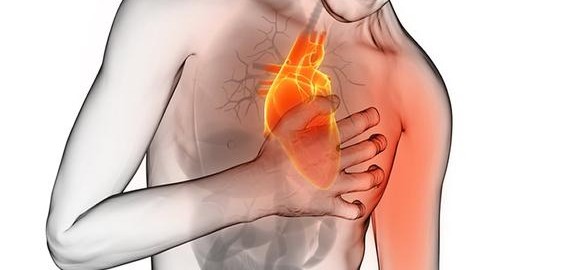New Treatment for Refractory Angina

Angina—a squeezing, pressure-like chest pain—can feel similar to a heart attack and is a warning sign that the arteries carrying oxygen-rich blood to the heart are blocked. Although angina is typically short-lived, it is an indicator of underlying, potentially life-threatening heart disease. Refractory angina (RA) is resistant to traditional therapies such as drugs, angioplasty, and coronary artery bypass surgery. Now a study has shown that stem cell therapy may be able to treat these challenging cases by controlling chest pain, fatigue and shortness of breath as well as improving exercise tolerance and reducing mortality.
The study, called RENEW, was presented at the 2016 Scientific Sessions of the Society for Cardiovascular Angiography and Interventions (SCAI) in Orlando, Florida. It examined the potency of CD34+ stem cells that were mobilized by granulocyte-colony stimulating factor (G-CSF). In pre-clinical models, CD34+ stem cells have demonstrated the ability to increase blood flow. G-CSF triggers the production of granulocytes (white blood cells) and stem cells in the bone marrow, which then enter the bloodstream and find their way to areas of blockages.
The incidences of RA are increasing as human longevity improves, states Dr. Timothy D. Henry, MD, MSCAI, one of the study’s principal investigators and Director of Cardiology at Cedars-Sinai Heart Institute. Even with the best medical care, people with RA must live with debilitating and lifestyle-limiting symptoms.
The study subjects were carefully chosen patients with RA who had class III or IV angina, even on maximum tolerated medical therapy, and suffered at least seven episodes of angina every week. The patients had a treadmill exercise time ranging between 3 and 10 minutes and were not deemed suitable candidates for surgery or revascularization procedures. Following random division into three groups, one group received open-label standard of care (SOC) treatment and the other two groups received blind placebo versus treatment with CD34+ stem cells. The frequency of angina and treadmill exercise time were assessed at 3, 6, and 12 months, and the patients were followed for major adverse cardiac events (MACE) for two years following treatment.
The group of cell-treated patients showed an increase in exercise time by more than 2 minutes at every assessment and a 40 percent reduction in angina compared to the group that received the placebo. Two years following treatment, the group treated with CD34+ stem cells had a mortality rate of less than 4 percent compared to 10 percent in the placebo group and just over 7 percent in the group that got SOC treatment. The occurrence of MACE was likewise lower in the CD34+ cell group compared to the SOC group. These results are consistent with those put forth by the ACT34 trial.
Financial considerations forced the investigators to prematurely terminate the trial after treating 112 patients instead of the planned 444, but early results are indicative that stem cell therapy is a promising approach for RA patients who have otherwise limited treatment options, states Dr. Tom Povsic, MD, FSCAI, interventional cardiologist at Duke University School of Medicine and Associate Professor at the Duke Clinical Research Institute (DCRI), also a principal investigator on the RENEW study. It is hoped that funding will soon become available to advance the development of effective and reliable cell therapies and bring them safely and quickly to heart patients.
References:
https://www.sciencedaily.com/releases/2016/05/160505140318.htm
http://www.webmd.com/heart-disease/guide/heart-disease-angina
Image courtesy of http://tlvz.com/


